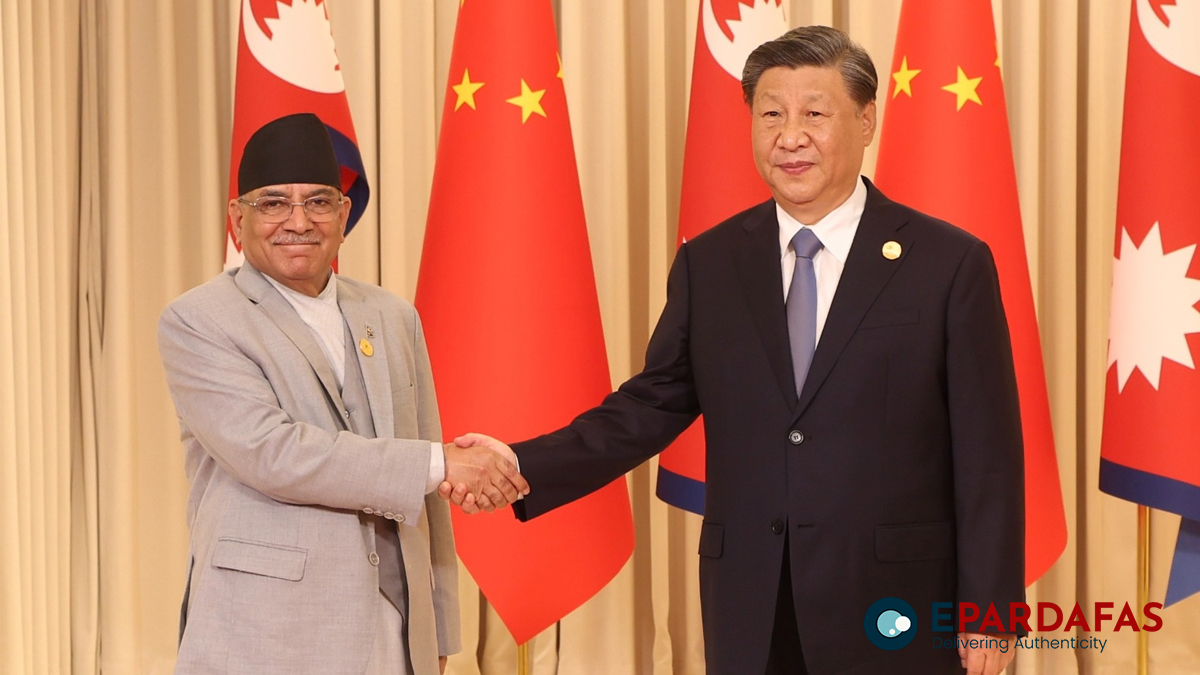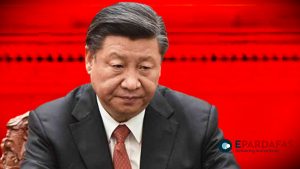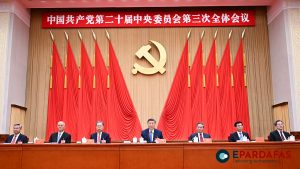
Is Nepal Shifting from One China Policy to Embrace China’s One China Principle?
Prime Minister Pushpa Kamal Dahal ‘Prachanda’s recent visit to China has sparked a dilemma regarding Nepal’s stance on the ‘One China Policy’ versus the ‘One China Principle’. Following an eight-day visit to China, he returned to Nepal on Saturday, leaving many questionings which of the two Nepal is adhering to.
While the terms ‘Policy’ and ‘Principle’ may seem similar, there exists a significant difference between them. However, statements issued during Prime Minister Prachanda’s China visit and subsequent joint statements have mentioned both the ‘One China Policy’ and the ‘One China Principle’, further complicating the matter.
The joint statement issued by Nepal and China on October 9, a day after the bilateral meeting between Prime Minister Prachanda and his Chinese counterpart, featured the term ‘One China Principle.’
“The Nepalese side has reiterated its firm commitment to the One China principle. Acknowledging that the Chinese government is the only legitimate government representing the whole of China and that Taiwan is an inalienable part of China’s territory, the Nepali side is against the ‘independence of Taiwan’,” the joint statement stated.
Prior to this, Nepal had consistently referred to the ‘One China Policy’ in its statements and joint communiques with China. The terminology used by Nepal had always been ‘One China Policy’. However, the joint statement during Prime Minister Prachanda’s visit marked the first instance where “principle” was replaced by “policy.” This change came after Prime Minister Prachanda’s meeting with Chinese President Xi Jinping in Hangzhou on October 6, three days before the joint statement’s issuance from Beijing.
The statement released by the Nepali Embassy in Beijing following the meeting with President Xi mentioned that Prime Minister Prachanda reiterated his commitment to the one-China policy.
“President Xi Jinping expressed happiness over the close friendship, good neighborliness, and bilateral cooperation between Nepal and China. He praised Nepal’s one-China policy and expressed China’s support for Nepal’s sovereignty, geographical integrity, and economic development,” the statement read.
Upon his return from China, Prime Minister Prachanda personally read a press note at Tribhuvan International Airport, which made no mention of the ‘One China Principle’. The press note mentioned the ‘One China Policy’ only once.
“Nepal has always been committed to the one-China policy. Reaffirming this commitment, Prime Minister Prachanda stated that the relationship between Nepal and China would be based on the principles of Panchsheel, good friendship, mutual partnership, respect for international values and laws, and future actions aimed at elevating this relationship,” Prime Minister Prachanda said while recounting the achievements of his China visit.
Notably, only one document released during the visit, the ‘One China Principle’, found its place in the Joint Communiqué, while the document issued solely by Nepal used the term ‘One China Policy’.
During their bilateral meeting in Beijing on October 8, Prime Minister Prachanda and his Chinese counterpart Li Qiang also used the term ‘One China Principle’, as indicated in the statement released by the Chinese Foreign Ministry.
“Nepal is firmly committed to the one-China principle, supports China in safeguarding national sovereignty and geographical integrity, and will not allow any power to use Nepal’s land for anti-China activities,” the Chinese Foreign Ministry stated.
Dinesh Bhattarai, a foreign affairs expert and former ambassador, emphasized the substantial difference between ‘policy’ and ‘principle’.
“If ‘principle’ is considered as the constitution, then ‘policy’ is the law. Since the basic law is the constitution, all laws that conflict with the basic law are null and void,” Bhattarai explained. “Shifting from policy to principle implies a loss of faith in China.”
Bhattarai noted that China has harbored suspicions that Nepal may be pursuing an ‘independent foreign policy’, leading to its shift from ‘policy’ to ‘principle’. He argued that China’s past behavior indicated this possibility. According to him, China’s change from “policy” to “principal” stems from concerns about Nepal’s actions.
(epardafas has compiled this news from an article authored by Surendra Paudel, a seasoned journalist with expertise in diplomatic affairs, published on the baahrakhari.com.)














Comments